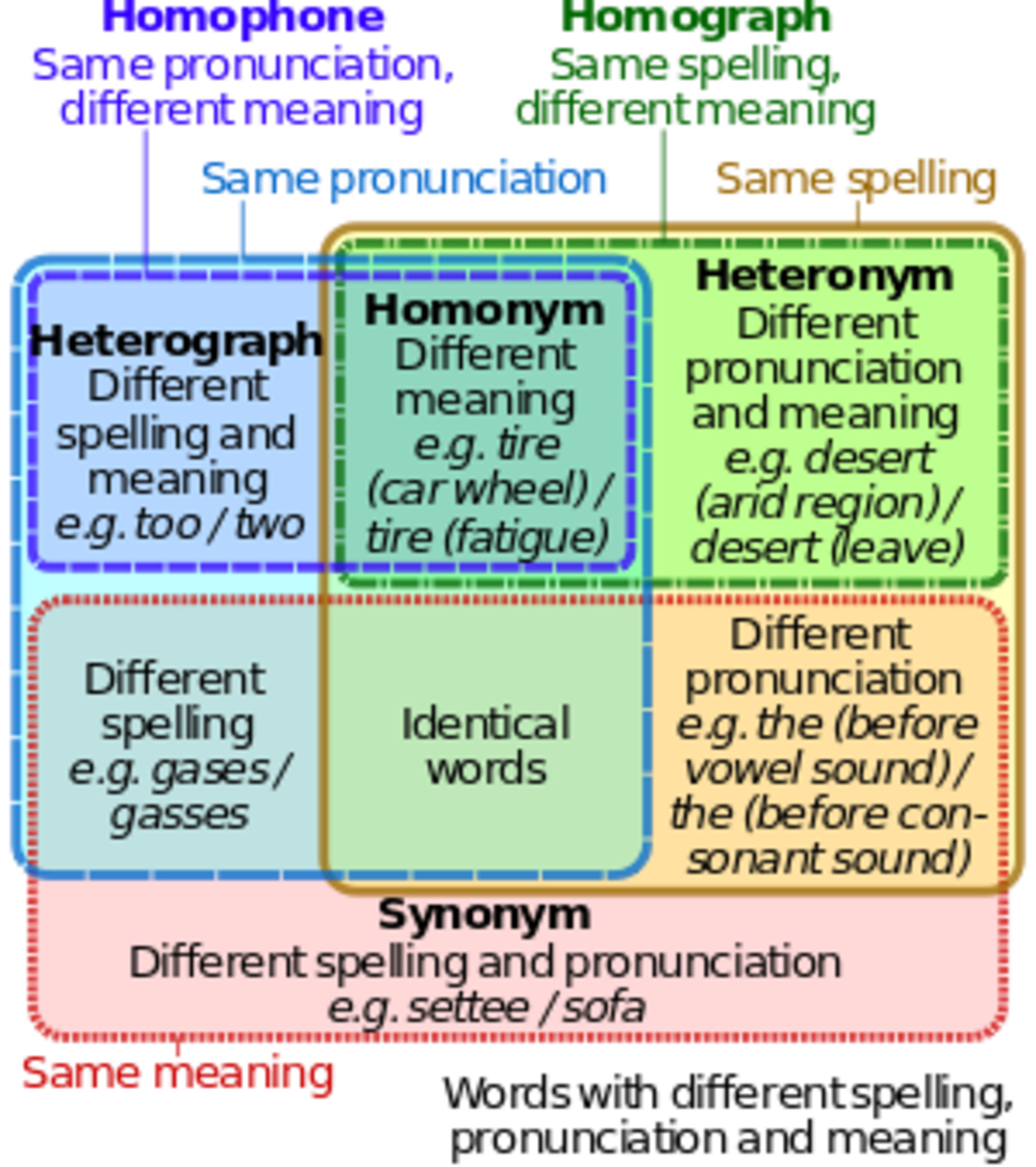Words Frequently Confused and Misused
Homonyms Might Sound Alike, But That's Where The Similarity Ends
Have you ever read a well-written letter in the newspaper or article in a magazine only to find that some of the words, often homonyms, were misused and/or spelled incorrectly? When that happens, it casts an unattractive shadow over what could have been an excellent article. Just learn these simple rules (or print them out so you can refer to them), and you won't have to worry about that dreaded shadow consuming your writing efforts.
- Two words that probably are among those most frequently confused are affect and effect. Affect is a verb (usually), and effect is a noun(usually). When affect is used as a verb, the accent will be on the second syllable, and it will sometimes be followed by an object (a noun or pronoun). Example: "His work ethic affected his paycheck." It will not always take an object, however: "His paycheck was affected by his work ethic." Now for the more uncommon usage: As a noun, the accent is on the first syllable, and affect means "appearance": "The disturbed man's face had a flat affect." Effect is (usually) a noun meaning "result." : "The effect of his poor work ethic was a decrease in pay." "She suffered side effects." The exception to this rule ( remember, English is notoriously the language of exceptions!) is when used as a verb, effect means "to cause." : "The government attempted to effect change with the amendment. "
- Okay, those two were tough. It should be easier to remember the difference between these two: accept is a verb, while except is a preposition. "I eagerly accepted the invitation to the party." "Everyone came to the party except Jeff." (Notice that the preposition is followed by an object.)
- That brings us to the infamous lie and lay. Lie can be used as both a verb and a noun. The noun form is easy to recognize, because it means "a falsehood." : "The boy told a lie and was punished for it." As a verb, there are two meanings. The first is " to tell a falsehood" : "The boy lied." The second meaning is "to rest." : "Martha was so tired she had to lie down." Here's where it gets tricky. The principal parts of this usage for to lie are lie, lay, (has,had,have) lain. : " The child had to lie down today after school. He lay down yesterday. He has lain down after school every day this month." Once you have that mastered, we can move on tothe verb lay. (I know; when it means "to rest," lay is the past tense of lie.) When it means "to put or place," the principal parts are lay, laid, (has,had,have) laid. : " The teacher has to lay the book on the table because her hands are full. Yesterday she lay it there, too. In fact, she has lain it there several times this week."
- Whew! These homonyms should be much easier. There is an adverb referring to a place: "We walked there many times." Their is a pronoun showing possession, which also makes it an adjective: "Their coats hung in the closet." They're is a contraction meaning "they are": "They're about to leave the theater." What did I tell you? Easy!
- Finally, we'll end with to, too, and two. To is a preposition, so it must be followed by an object: "We went to the concert last night." Too is an adverb meaning "also" or used as a measure: "He came along too and then ate too much afterwards." Two is an adjective telling how many: "He bought two movie tickets." Put them together, and you get something like, "He went out to dinner and came home with two pieces of pie, too."
That's all there is to it. Once you have effected these usages, the effect on your writing will be tremendous, and you'll feel more confident, too. Hopefully, you have been positively affected by reading this and have been able to accept the fact that the strange rules of English often must be laid out for you; that's no lie!





